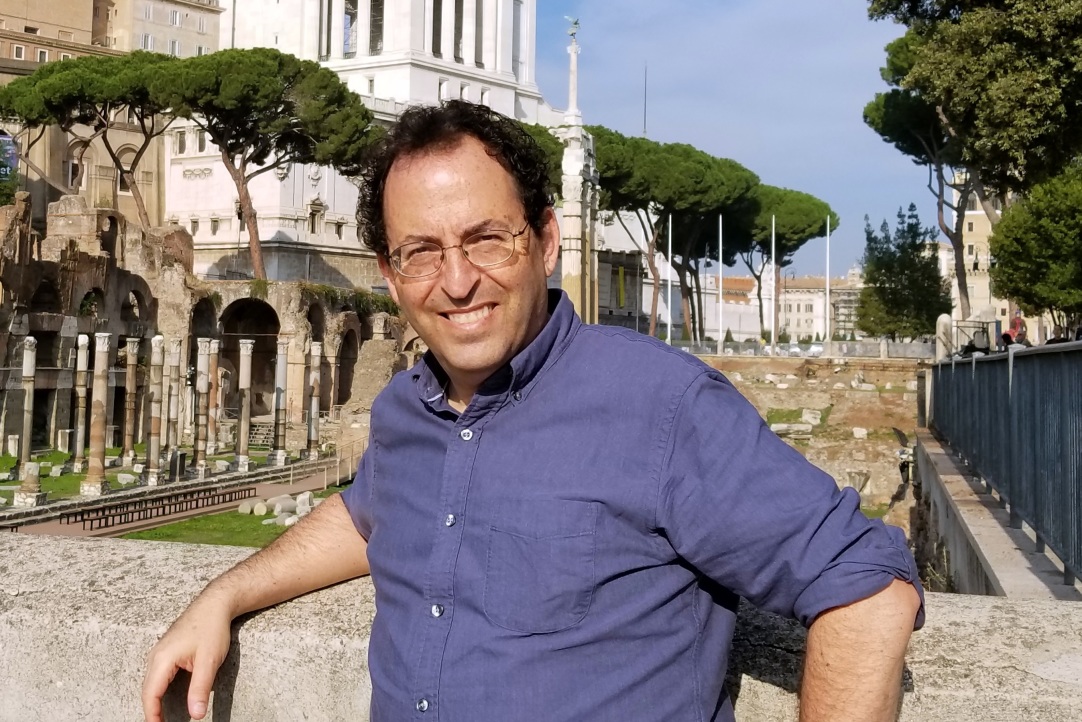American Scholar Presents New Reading of 18th-Century Novel by Mikhail Chulkov

Professor Levitt attended the research seminar, ‘Languages of Culture’, which is offered by the School of General and Applied Philology at the Faculty of Humanities. In his lecture, ‘The Comely Cook in the Context of Eighteenth-Century Russian Culture and Lubok Literature’, Professor Levitt presented a new reading of the novel in light of a lubok that is mentioned in the text, and, as he argues, provides a key to understanding the novel. ‘I have found what I believe is a source for Chulkov's The Comely Cook (Prigozhaia Povarikha) in a particular lubok that is mentioned in the text. This enriches our understanding of the work as a literary travesty, a comic game (as opposed to the mainstream scholarly view of the book as a work of realism and a ‘bytovoi roman’),’ he says. ‘In the presentation, I also consider the sources of the lubok's plot as well as its visual features. This analysis has significance both for understanding the genesis of the Russian novel and the complexity of cultural exchange in eighteenth century Russia.’
Inspiration in Dostoevsky, Solzhenitsyn and other Russian Writers
Professor Levitt’s initial interest in Russian literature came in high school, when he did a great deal of reading. ‘I loved Dostoevsky, Solzhenitsyn, Abram Tertz and Yuli Daniel. Then I began to study the Russian language, and fell in love with it.’
My decision to pursue a career in Russian literature came while I was in college, when I spent a summer in Leningrad on the CIEE language program at LGU. I became fascinated with Russia
From 18th century and Avant-garde to Russian prison camp literature
I have always enjoyed teaching new subjects and exploring new phenomena, and I've been very lucky to have been able to design my courses and to teach both at the undergraduate and graduate level, as well as in what in the U.S. is called ‘general education’ programmes.
As far as my research and writing, I've had two basic directions. One is the development of a modern literature in Russia. I began by exploring Pushkin and his elevation to ‘national poet’ (in my first book), and from there worked backward to the eighteenth century. The other rich source of ideas for research and writing has been my teaching.
Literary Phenomena and Challenge
One big challenge is to share my enthusiasm and love for Russian literature with my students (a challenge that is common to all teaching). The variety is a challenge in a very exciting sense: to explore all of Russia's amazing writers and literary phemonena.
It is hard to generalize about all American students and what is interesting for them. Those that already know something about Russian literature love to study Dostoevsky, Tolstoy, and Nabokov.
My course on prison camp literature—strange as it may seem—has been popular with students because of the very seriousness of the subject matter and the fact that it challenges our understanding of what it means to be human. In general, what has attracted me to Russian literature from the start has been its urgent search for meaning in life, for human truth.
The Endless List
The list of Russian literature for recommendation for reading is endless! I don't have a top five, but I would recommend:
- Almost any poem by Pushkin, Lermontov, Fet, Tiutchev, Akhmatova.
- Tolstoy's stories "For the people."
- Any story by Chekhov (the first I read in Russian was ‘Gooseberries’ (‘Kryzhovnik’), which is still a favorite).
- Pushkin’s Evgeny Onegin. (It's worth learning Russian to read this work!)
- Dostoevsky's Notes from the Underground took me many readings to puzzle out, but I came to understand how revolutionary it is, and how it presents some of Dostoevsky's fundamental ideas about human psychology and our often destructive desire for self-assertion.
- Shalamov's short stories are among the hardest but also among the most rewarding for serious, close reading.
My reading of contemporary writers is not very systematic. Among others, I like: Svetlana Aleksievich, Sorokin, Vodolazkin, Pelevin, Tolstaya, etc. I also read memoirs about the Gulag that continue to be published.
I have also been reading (mostly forgotten!) Russian women novelists of the 19th century, especially Evgeniia Tur and Sofiia Khvoshchinskaia. Last year I translated Tur's ‘Na rubezhe’; my translation is now under consideration for publication.
Marcus Levitt, Professor Emeritus of Slavic Languages and Literatures at the University of Southern California, is known for both his research on eighteenth-century Russian culture and on Alexander Pushkin. Broadly speaking, his work has focused on the problems of establishing a ‘modern’ western European style literature in Russia. His first book, Russian Literary Politics and the Pushkin Celebration of 1880(Cornell UP, 1989), as well subsequent works, have been translated into Russian and published in Russia.